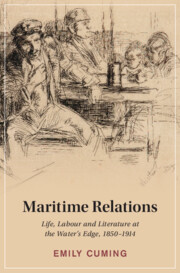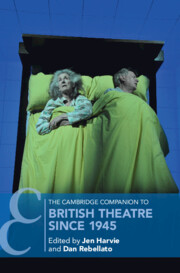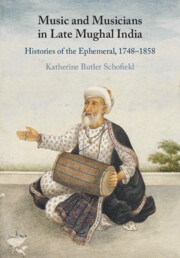Refine search
Actions for selected content:
43 results
Introduction
-
- Book:
- Maritime Relations
- Published online:
- 23 August 2025
- Print publication:
- 04 September 2025, pp 1-17
-
- Chapter
- Export citation

Maritime Relations
- Life, Labour and Literature at the Water's Edge, 1850–1914
-
- Published online:
- 23 August 2025
- Print publication:
- 04 September 2025
5 - The Proper and Orthodox Way of War
-
- Book:
- Warriors in Washington
- Published online:
- 23 June 2025
- Print publication:
- 10 July 2025, pp 125-158
-
- Chapter
- Export citation
6 - The Americans Are Coming
-
- Book:
- Warriors in Washington
- Published online:
- 23 June 2025
- Print publication:
- 10 July 2025, pp 159-179
-
- Chapter
- Export citation
4 - The British People
-
- Book:
- Brexitspeak
- Published online:
- 22 November 2024
- Print publication:
- 05 December 2024, pp 85-102
-
- Chapter
- Export citation
10 - Lost in Traditions? Continuity and Change in Hong Kong’s Language Regime
- from Part II - Dependent Relationships
-
-
- Book:
- States of Language Policy
- Published online:
- 14 November 2024
- Print publication:
- 21 November 2024, pp 190-206
-
- Chapter
- Export citation
3 - Personalities and Policies
- from Part II - The Dutch Case Studies
-
- Book:
- Balancing Strategy
- Published online:
- 25 April 2024
- Print publication:
- 02 May 2024, pp 55-72
-
- Chapter
- Export citation
Chapter 2 - Personality
- from Part I - Biography, People, Places
-
-
- Book:
- Vaughan Williams in Context
- Published online:
- 28 March 2024
- Print publication:
- 04 April 2024, pp 19-26
-
- Chapter
- Export citation
Introduction
-
-
- Book:
- The Cambridge Companion to British Theatre since 1945
- Published online:
- 14 March 2024
- Print publication:
- 21 March 2024, pp 1-20
-
- Chapter
- Export citation

The Cambridge Companion to British Theatre since 1945
-
- Published online:
- 14 March 2024
- Print publication:
- 21 March 2024
Nation-Building in the Post-Colonial Qatari State: The Politics and History of Nationalism
-
- Journal:
- Review of Middle East Studies / Volume 57 / Issue 2 / December 2023
- Published online by Cambridge University Press:
- 13 March 2025, pp. 210-242
- Print publication:
- December 2023
-
- Article
-
- You have access
- Open access
- HTML
- Export citation
1 - Chasing Eurydice
-
- Book:
- Music and Musicians in Late Mughal India
- Published online:
- 09 November 2023
- Print publication:
- 23 November 2023, pp 1-19
-
- Chapter
- Export citation

Music and Musicians in Late Mughal India
- Histories of the Ephemeral, 1748–1858
-
- Published online:
- 09 November 2023
- Print publication:
- 23 November 2023
Teaching Modern British Political History in a Politically Polarised and ‘Post-Truth’ Environment
- Part of
-
- Journal:
- Transactions of the Royal Historical Society / Volume 2 / December 2024
- Published online by Cambridge University Press:
- 16 October 2023, pp. 389-400
- Print publication:
- December 2024
-
- Article
-
- You have access
- Open access
- HTML
- Export citation
Chapter 7 - Tradition and Transformation in Literature
- from Part II - Writing the Nation
-
-
- Book:
- The Nation in British Literature and Culture
- Published online:
- 20 July 2023
- Print publication:
- 10 August 2023, pp 122-136
-
- Chapter
- Export citation
The Incoherence of Empire. Or, the Pitfalls of Ignoring Sovereignty in the History of the British Empire
-
- Journal:
- Transactions of the Royal Historical Society / Volume 1 / December 2023
- Published online by Cambridge University Press:
- 10 July 2023, pp. 191-217
- Print publication:
- December 2023
-
- Article
-
- You have access
- Open access
- HTML
- Export citation
6 - Change and Continuity: The Social Reproduction of Families between Kenya and the United Kingdom
-
- Book:
- Relative Distance
- Published online:
- 22 June 2023
- Print publication:
- 06 July 2023, pp 160-185
-
- Chapter
- Export citation
20 - Genocide in Van Diemen’s Land (Tasmania), 1803–1871
- from Part III - Nineteenth-Century Frontier Genocides
-
-
- Book:
- The Cambridge World History of Genocide
- Published online:
- 23 June 2023
- Print publication:
- 04 May 2023, pp 481-507
-
- Chapter
- Export citation
2 - A Very British Genocide
- from Part I - Settler Colonialism
-
-
- Book:
- The Cambridge World History of Genocide
- Published online:
- 23 June 2023
- Print publication:
- 04 May 2023, pp 46-68
-
- Chapter
- Export citation
Chapter 10 - Great Britain
- from Part II - Nations and Voices
-
-
- Book:
- A History of World War One Poetry
- Published online:
- 18 January 2023
- Print publication:
- 12 January 2023, pp 164-181
-
- Chapter
- Export citation
